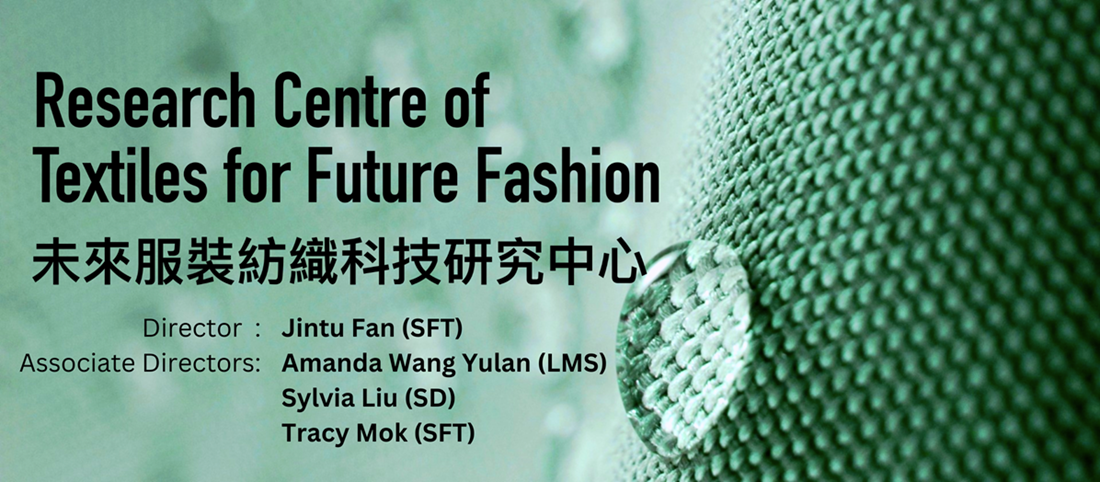The Centre will craft creative solutions for high-performance textile and fashion products, and for an efficient and sustainable fashion and textile life cycle, by addressing three major issues.
Under Advanced Fashion & Textile Materials and Technologies, members with expertise in fashion and textiles, applied physics, computing, mechanical engineering, and civil and environmental engineering will develop materials and enabling technologies for multifunctional fashion and textiles, sustainable materials and processes, and digital fashion.
Under Fashion & Textile Product Design and Innovation, textile researchers, designers and engineers will blend design, technology and market acumen to bring new clothing and bodywear tailored to a variety of users, such as construction workers, healthcare workers and sportsmen.
Under Fashion & Textile Life Cycle Management, experts from other fields, including applied mathematics, marketing management and logistics, will join hands with designers, computer scientists and textile researchers. They will develop novel technologies and solutions for a wide range of business activities, from data analytics, marketing, sales and distribution, to customer service, with the aim of enhancing the efficiency and sustainability of the fashion and textile life cycle.

Research innovation, collaborative partnership and talent growth for the prosperity of Hong Kong
The fashion and textile industry is often seen as a sunset industry. Truly upgrading the industry towards sustainable development, research innovation, collaborative partnership and talent growth is indispensable. The Centre will nurture new researchers and future leaders with interdisciplinary knowledge and expertise in technology, design and management relevant to the fashion and textile industry. The Centre will also work with academic institutes, research institutes, government departments, NGOs, industry associations, manufacturers, etc., to maximise research impact and opportunities for commercialisation and collaboration.

About the Centre
Established on 1 October 2023, the Research Centre of Textiles for Future Fashion (RCTFF) is a new constituent research unit of the PolyU Academy for Interdisciplinary Research (PAIR). The Centre aspires to be a leading interdisciplinary R&D centre that addresses real-world textile and fashion challenges for the sake of health, well-being, protection, performance and sustainability.
RCTFF undertakes frontier interdisciplinary research and development in specific focus areas; develops high-tech and high-value added innovative products and technologies for the fashion and textile industry; and engages in local, regional and international collaboration in the field for the sake of long-term economic and social prosperity.
The Centre is led by Prof. FAN Jintu, Director of RCTFF, Associate Director of the Research Institute for Sports Science and Technology (RISports), Chair Professor of Fiber Science and Apparel Engineering, and Lee Family Professor in Textiles Technologies in the School of Fashion and Textiles (SFT). The RCTFF Associate Directors are Dr LIU Xihui, Assistant Dean (Academic Programmes) and Associate Professor in the School of Design; Dr Tracy MOK, Associate Professor in SFT; and Prof. WANG Yulan, Associate Head and Professor in the Department of Logistics and Maritime Studies.








